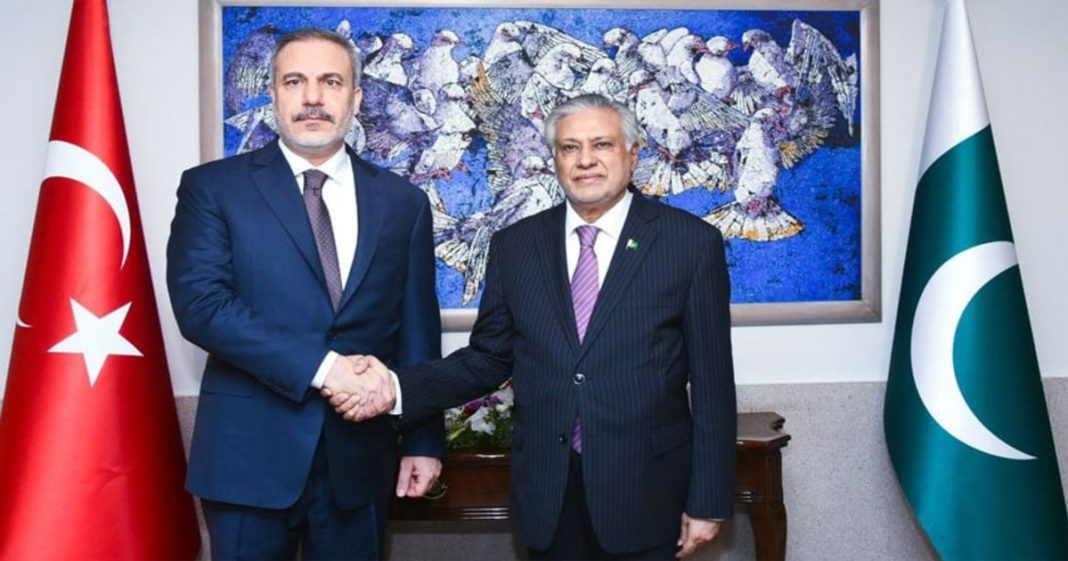After a meeting with Turkish FM Hakan Fidan at the Foreign Office, Deputy Prime Minister and Foreign Minister Ishaq Dar disclosed plans to elevate bilateral trade to $5 billion within three years. Mr. Fidan echoed the urgency of expanding trade, noting the annual bilateral trade volume at just $1 billion.
The discussions also covered preparations for the upcoming 7th session of the Pakistan-Turkiye High-Level Strategic Cooperation Council, although the Foreign Minister, Ishaq Dar did not disclose specific meeting dates. This council, co-chaired by the chief executives of both nations, aims to fortify cooperation in trade, investment, defense, and security sectors, as outlined in a statement by the Foreign Office.
Read more: Turkey halts trade with Israel amid Gaza crisis
Moreover, Ishaq Dar underscored the historical defense collaboration between the two countries and Turkiye’s steadfast support for the Kashmiri people. He also reiterated Pakistan’s backing for the rights of Northern Cyprus.
The meeting delved into regional and global issues, with a focus on the humanitarian crisis in Gaza, emphasizing the urgent need for a ceasefire and humanitarian aid. Additionally, the leaders addressed the pressing issue of Islamophobia and stressed the importance of addressing it comprehensively.
In a separate meeting, Prime Minister Shehbaz Sharif reaffirmed Pakistan’s commitment to bolster cooperation across various sectors, including trade, investment, and defense. He urged concerted efforts to achieve the $5 billion bilateral trade target over the next three years, inviting Turkish companies to expand their investment footprint in Pakistan.
Read more: Russia Joins Probe into Iranian President’s Helicopter Crash
Furthermore, Mr. Sharif extended an invitation to President Recep Tayyip Erdogan for an official visit to Pakistan to co-chair the 7th HLSCC meeting. Meanwhile, Mr. Fidan met with Army Chief Gen Asim Munir, expressing satisfaction with the longstanding bilateral relations and commending Pakistan Army’s role in regional stability.














